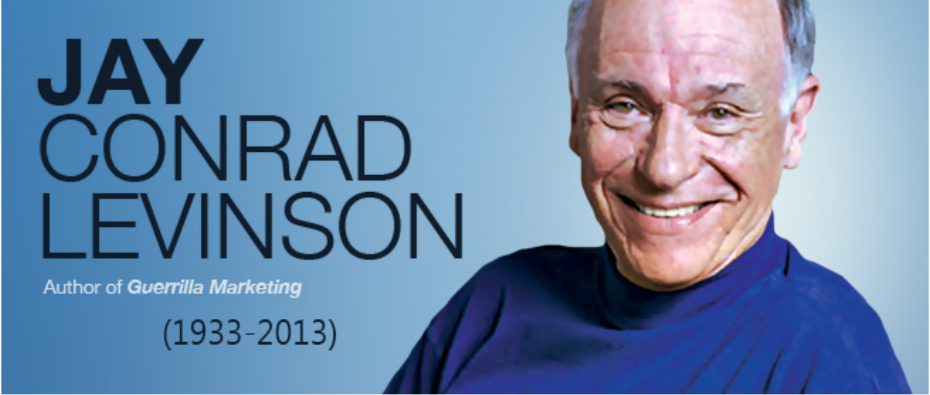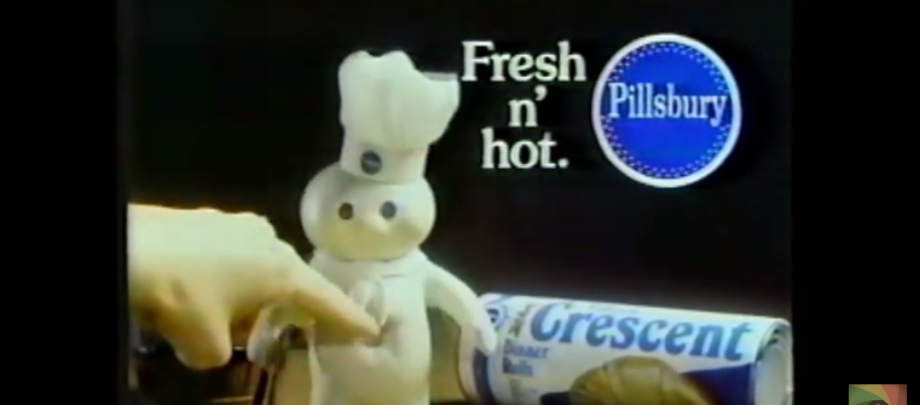This marketing strategy never goes out of style! Here's how you can effectively compete with the "Big Guys!"
Let’s start this week with our daily dose of motivation from well-known and successful people in the field of business and marketing. Every Monday, we feature different “Marketing Marvels” in the hope that you will be inspired by their lives, insights, and experiences. Today, I’d like to share with you the story of Jay Conrad Levinson, who is known as the Father of Guerrilla Marketing. Keep reading below to know more about his marketing tactics and how guerrilla marketing has become one of the most effective ways to market a brand.
|
||
|
This marketing strategy never goes out of style! Here's how you can effectively compete with the "Big Guys!" (Mondays “Marvels”) Jay Conrad Levinson: The Father of Guerrilla Marketing IHOP’s fake name change campaign… Bounty’s “Big Messes”… KitKat’s “Take A Break” benches… These are just a few of the unconventional marketing tactics we featured in our past “Gorillas of Guerrilla Marketing” articles. Guerrilla Marketing ⟶ Fun, unique, and engaging (sometimes even inexpensive) marketing strategies to effectively promote a brand. Do you know how this marketing tactic came to life―specifically, who first coined the term, “Guerrilla Marketing?” It’s none other than this man: Jay Conrad Levinson ! Levinson was a business writer who became famous as the “Father of Guerrilla Marketing” and author of the 1984 bestselling book, “Guerrilla Marketing.” Born on February 10, 1933 in Detroit, Michigan and raised in Chicago, he was known as one of the people who revolutionized the way marketing is done. Levinson graduated from Roosevelt University in 1956 with a Degree in Psychology. This led him to work as:
Levinson also taught marketing for 10 years at the extension division of the University of California in Berkeley while working at J. Walter Thompson. The Big Idea: Guerrilla Marketing Guerrilla Marketing is a strategy where a company uses surprise and unconventional methods to promote a product or service. This strategy uses multiple techniques to establish direct contact with consumers and spark an emotional reaction in them. Levinson coined and popularized this term to describe unique marketing tools and tactics that business owners and marketers can use to promote their brands, especially when their financial resources are limited. Until today, guerrilla marketing remains to be one of the most effective ways to generate buzz and interact with consumers. When Levinson wrote the book, “Guerrilla Marketing” in 1984, he created one of the most important movements in the business world. His book became a de facto bible of marketing and entrepreneurial advice. It was also in this year when Levinson founded his own company, the Guerrilla Marketing International, Inc. His purpose? To provide business owners and marketers with the basic know-hows of guerrilla marketing, which include creativity, inspired thinking, strategies, measurements, profits, and easy-to-execute plans! Levinson’s insights, teachings, and advice on guerrilla marketing helped lots of business owners and marketers. With this unconventional method, they were able to effectively compete with the “Big Guys” in the industry and promote their brands successfully. This shows that Levinson was a genius, a legend, and a revolutionary in the field of business and marketing! The Pillsbury Doughboy is an advertising mascot that appeared in the Pillsbury Company’s commercials from 1965 to 2005. This icon was one of Levinson’s works when he was the Creative Director at Leo Burnett Advertising. Now that we know who the Father of Guerrilla Marketing is and what this strategy is about, the question we have to answer next is… “How can you ensure your guerrilla marketing campaigns will succeed and help your brand connect with your target market?” Below are a few tips!
Here’s the bottom line: You don’t necessarily have to spend big on guerrilla marketing campaigns. As Levinson said, this marketing strategy works because it’s “simple to appreciate, easy to execute, and inexpensive.” You just need to exercise your imagination and creativity as well as use your energy, resources, and time properly. The purpose of these campaigns is to make people remember your brand. So, in planning your guerrilla marketing tactics, be creative in devising unconventional methods of promotion to maintain your target market’s interest. One of Levinson’s legacies is this marketing strategy that never goes out of style. He taught us that in marketing, money is secondary to time, energy, and imagination. He made us realize that cleverness, resourcefulness, and ingenuity go much further than just spending money to promote your brand. A round of applause for the Father of Guerrilla Marketing! He definitely deserves our gratitude for giving us a revolutionary concept that helps us creatively and effectively promote and market our offerings. Hope you’ve found this week’s insights interesting and helpful. Follow us on LinkedIn. Stay tuned for next Monday’s Marketing Marvels! |


